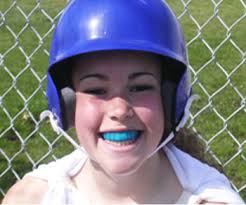LOS ANGELES, CALIFORNIA- College and professional football is already a couple months into the season, which makes us think about our patients who are aspiring young athletes participating in organized sports and whether they are playing safely.

Have you been wearing a mouth guard to protect your mouth and braces during practices and games? In August, during the flurry of back to school preparations, we reminded you to check mouth guards for signs of wear and to make sure they fit properly. If you haven’t, make sure you do.
“Playing sports considerably increases your risk of dental injury,” says Dr. David Alpan, a Los Angeles orthodontist and a profoundly experienced Las Vegas TMD dentist. “But you can prevent the vast majority of sports-related traumatic injuries if you consistently use protective gear, including a mouth guard.”
The National Youth Sports Safety Foundation predicted that more than three million teeth will be knocked out in youth sporting activities in 2012, but when the American Association of Orthodontists did a survey about mouth guards, 67 percent of parents admitted their children don’t wear one during organized sports.
It’s not just contact sports that a mouth guard is recommended for, though. A lot of dental injuries come from athletes playing baseball and basketball. The American Association of Oral and Maxillofacial Surgeons says children and adults who participate in any sport that involves falls, body contact or flying equipment should wear one, including skateboarding and mountain biking.
“Keeping your teeth safe and sound is the number one priority of a mouth guard,” says Dr. Alpan, who offers orthodontics for children and adults. “Keeping the brackets, wires and other appliances from getting damaged is also important. Any time something breaks, there is a chance that it will set back the treatment schedule.”
The three classifications of mouth guards are stock, boil-and-bite and customized. A custom-made mouth guard will provide the most comfortable fit, but any type of mouth guard or performance wear an athlete chooses to protect their teeth is better than not wearing one.
“You can get mouth guards in different colors or with team logos in them,” says Dr. Alpan, who offers the popular Invisalign Teen aligners at his practice. “There are even flavored guards that taste like lemon, mint, orange, bubblegum and fruit punch.”
Three Things To Remember About Mouth Guards
When choosing a mouth guard, remember this acronym: CFP.
- Comfort. Mouth guards should never restrict speech or breathing. Athletes often complain that mouth guards are uncomfortable. A good mouth guard will still take some getting used to, but it won’t be painful or uncomfortable.
- Fit. The guard should fit over all the teeth and orthodontic appliances to protect them. Depending on the bite, it may cover the gums as well. You can have us check yours to make sure it fits properly.
- Protection. Some mouth guards offer what they claim to be better protection than others. Whatever you choose should be resilient and tear-resistant.
Please contact our office if you would like to schedule a free consultation with the doctor or need to be fitted for a mouth guard.
© 2012 Master Google and Dr. David Alpan. Authorization to post is granted, with the stipulation that Dr. David Alpan and Master Google are credited as sole sources. Linking to other sites from this press release is strictly prohibited, with the exception of herein imbedded links.
